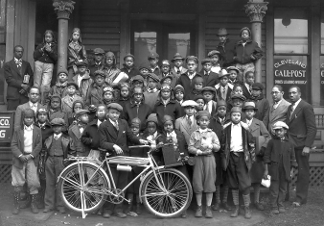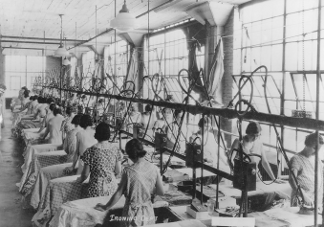ALLEN, FLORENCE ELLINWOOD (March 23, 1884-September 12, 1966), was a jurist whose career marked a series of firsts for women. Born in Salt Lake City, Utah to Clarence Emir and Corrine M. (Tuckerman) Allen, she majored in music at Western Reserve University (now CASE WESTERN RESERVE UNIVERSITY) from 1900-1904, then studied piano from 1904-1906 in Berlin while also working as a music journalist. After a nerve injury ended her music career, she returned to Cleveland as music critic for the PLAIN DEALER and a teacher at LAUREL SCHOOL. Law became her main interest; she received a Master of Arts in political science and constitutional law from WRU in 1908.
Rejected by WRU's law school because of her sex, Allen attended the University of Chicago (1909-1910) and New York University (1911-1913). After receiving her law degree, she was admitted to the Ohio bar in 1914. Allen was an ardent suffragette and successfully defended women's municipal suffrage before the Ohio Supreme Court in 1917.
Allen's career embodied many firsts for women: her appointment as assistant county prosecutor in 1919; her election as common pleas court judge in 1920 and as Ohio Supreme Court judge in 1922 and 1928; and her appointment by President Roosevelt as Judge of the United States 6th Circuit Court of Appeals in 1934. Presidents Roosevelt and Eisenhower both considered her for a Supreme Court appointment. In 1958, Allen became chief judge of the 6th Circuit, making her the first woman chief judge of a federal court. She retired in 1959.
Allen wrote This Constitution of Ours (1940), The Treaty as an Instrument of Legislation (1952), and her autobiography, To Do Justly (1965). She spoke on human rights, cultural relations, and international law. Never married, Allen died in Cleveland and is buried in Waite Hill Cemetery.
Tuve, Jeanette, First Lady of the Law (1984).
Last Modified: 24 Aug 2005 04:39:02 PMFlorence E. Allen Papers, WRHS.
- Related Article(s)









